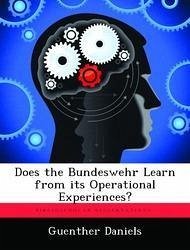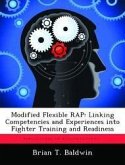The way the Bundeswehr as an organization collects, analyzes and disseminates lessons learned from its operational experiences is not only of utmost significance for force protection and effectiveness in missions but also gives critical indications for how effectively the German Army learns as part of the Bundeswehr. This monograph analyzes the German lessons learned process on the basis of the two most relevant directives of the German Ministry of Defense and Standing Operating Procedures of the Bundeswehr Operations Command. These papers describe in detail purpose, responsibilities, coordination measures, workflow and organizational structure. The research here does not address the issue whether human behavior and leadership culture in the Bundeswehr contribute to its learning capability. That research does not lie within the scope of this study. The monograph introduces current approaches to organizational learning and identifies ten normative facilitating factors that promote learning. The more each facilitating factor is prevalent in an organizational unit the more opportunity exists for learning. The main discussion focuses on relevant elements that process lessons learned in the Bundeswehr in general and the Army in particular. The elements can be categorized in three groups: elements that acquire information, elements that interpret and disseminate information, and elements that ensure the application of lessons learned. These three categories and their interaction with each other are assessed by means of the identified facilitating factors. It appears that the German way to acquire, interpret, disseminate and ensure the application of lessons learned fulfills by and large the requirements of the identified facilitating factors. Accordingly, the lessons learned system is appropriate to provide the necessary and sufficient conditions that allow learning to emerge and flourish. However, the research also reveals barriers to learning that hamper effective orga
Hinweis: Dieser Artikel kann nur an eine deutsche Lieferadresse ausgeliefert werden.
Hinweis: Dieser Artikel kann nur an eine deutsche Lieferadresse ausgeliefert werden.





![The Frontier Schoolmaster [microform]: the Autobiography of a Teacher: an Account Not Only of Experiences in the Schoolroom but in Agricultural, Polit The Frontier Schoolmaster [microform]: the Autobiography of a Teacher: an Account Not Only of Experiences in the Schoolroom but in Agricultural, Polit](https://bilder.buecher.de/produkte/65/65591/65591631m.jpg)


